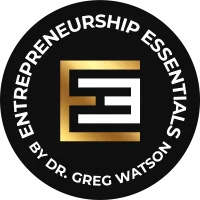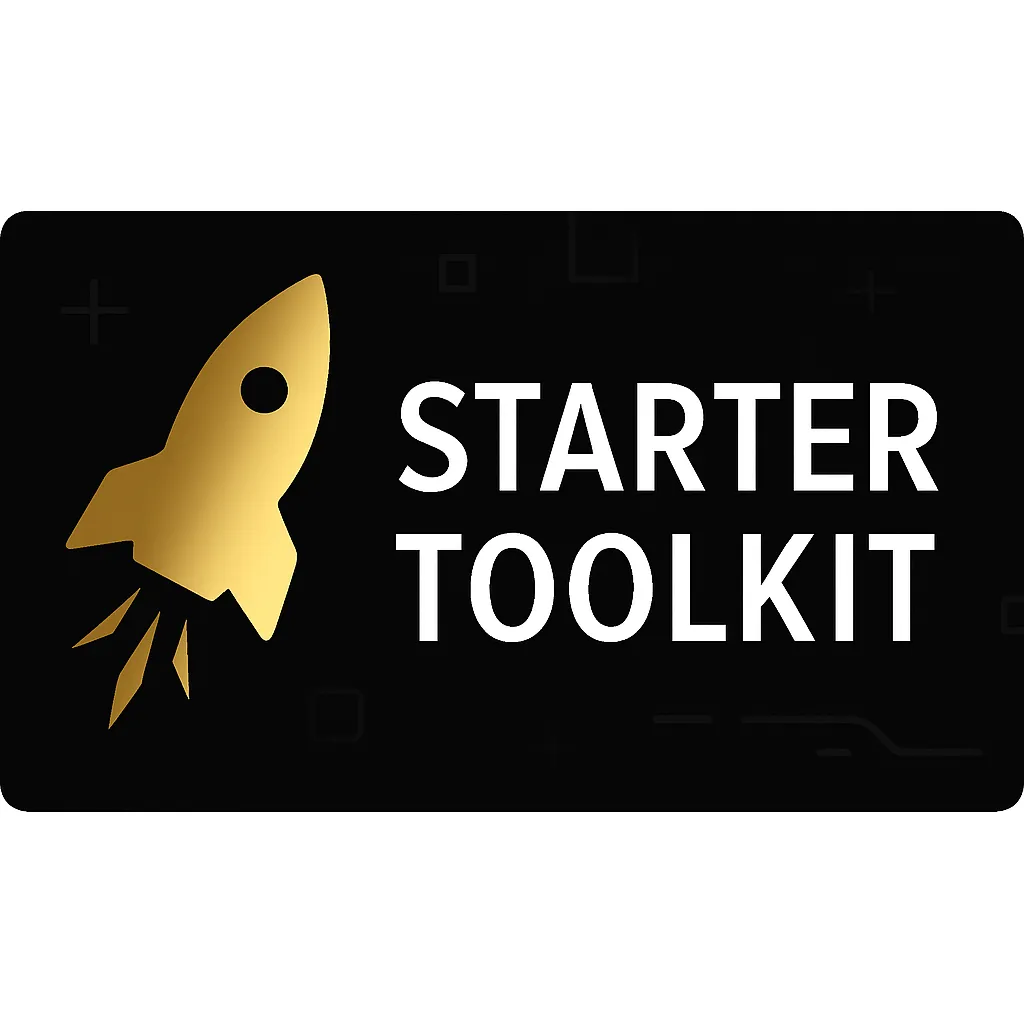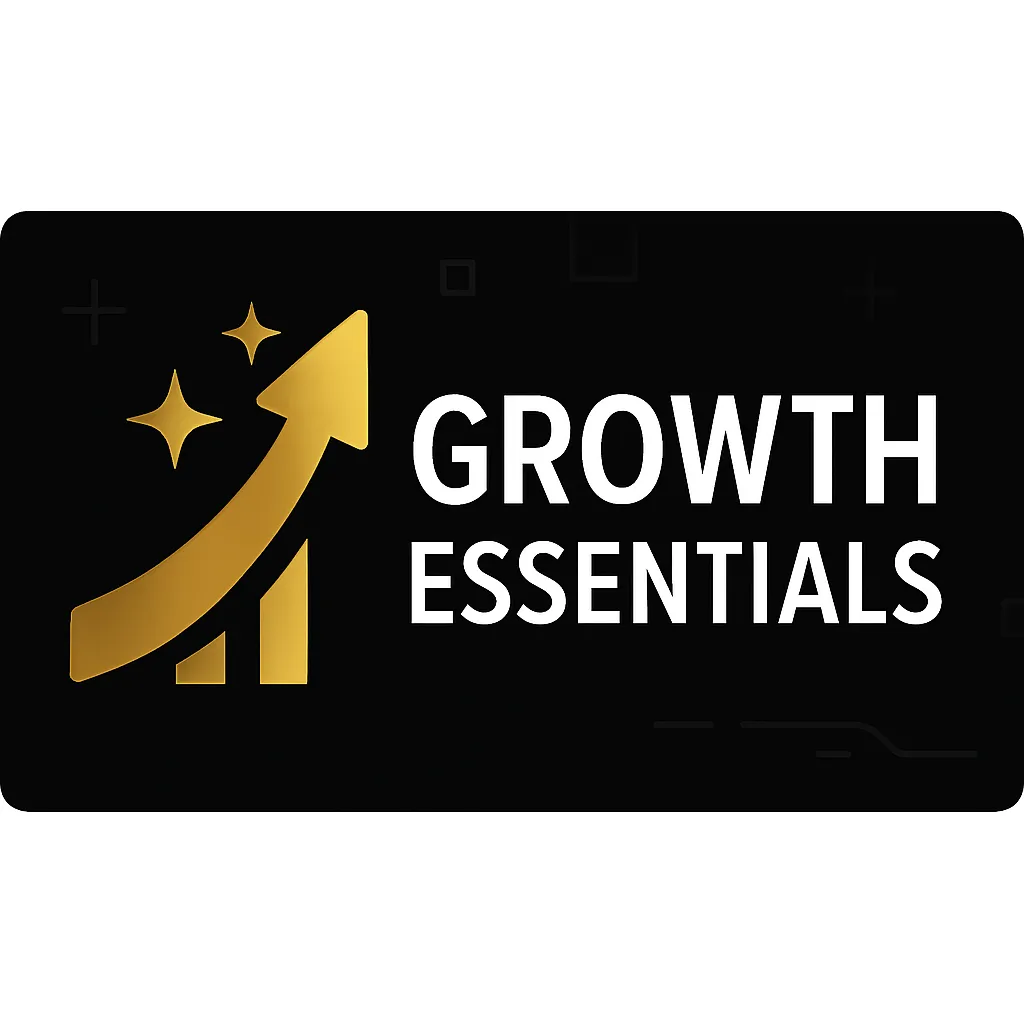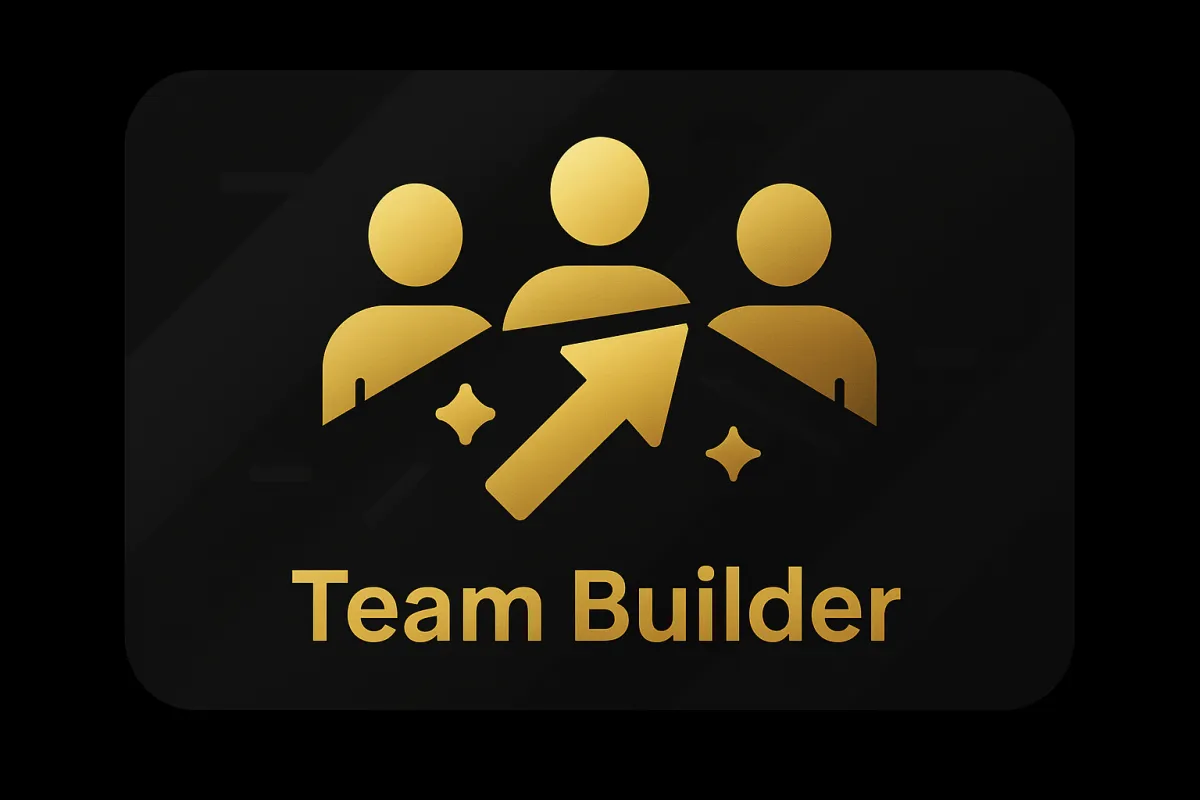Entrepreneurship Consulting: From Idea to Launch to Exit
Helping businesses go from idea to launch … scaling, and growth … to exit strategy …

End-to-End Business Development Programs
From launch, to scaling, to growth, and exit strategy ...
Everyone is different – and everyone gets stuck and needs a little help at a different spot …
So whether you want help from beginning to end or just need a little help overcoming a hurdle – we are here to help …
End-to-end programs.
Core Consulting Areas
It's simple, effective, and helps you take your business to the next level!

Support Functions
Sometimes you just need a little help and guidance working through that next strategic phase ...

Service Operations
Sometimes you need done-for-you support in a specific area of your business ...

Supply Chain
Often we have the network and the connections to help you go from idea to production ...

Scaling/Revenue
3X, 10x, Scaling Revenue and Growth to the next level ...
Team Building & Management Development
Your management team isn’t just who you hire — it’s the backbone of your business’s ability to scale. Learn how to build a team that attracts investors, executes with precision, and accelerates your vision.
Customer Validation & Market Analysis
If you don’t know your customer, your business is guessing — and guessing doesn’t scale. Let’s show you how smart entrepreneurs define, validate, and serve their ideal customers for maximum traction.
Market Sizing & Positioning Strategy
A great idea in a small market can’t grow beyond its limits. Discover how we coach entrepreneurs to size markets realistically and position their ventures for scalable success.
Competitive Analysis & Differentiation
Your competitors aren’t roadblocks — they’re a map to opportunity. We’ll help you turn competitive analysis into a strategy that sets your business apart.
Technology Strategy & Implementation
Technology is either your rocket fuel or your anchor. Find out how our coaching helps entrepreneurs choose and use technology that gives them the winning edge.
Intellectual Property Protection
Without protected intellectual property, your innovations risk becoming someone else’s profit. Learn how smart entrepreneurs safeguard their ideas and build lasting value.
Sales Strategy Development
A business without a sales strategy is a hobby. Let’s coach you on building a sales engine that drives revenue and powers sustainable growth.
Business Model Optimization
Revenue is vanity; profit is sanity. Our coaching shows you how to design a business model that maximizes profitability from day one.
Capital Planning & Fundraising
Knowing how much you need — and when — separates savvy founders from the rest. Let us guide you in planning capital that fuels growth without costly mistakes.
Financial Planning & Analysis
Your numbers tell the story investors want to hear — or don’t. Learn how to build financials that inspire confidence and guide smarter decisions.
Exit Strategy Planning
A great exit isn’t an accident — it’s designed from the start. We’ll help you create an exit strategy that rewards your hard work and creates generational wealt
Business Plan Development
Your business plan isn’t just a document — it’s your roadmap. Discover how we coach entrepreneurs to create plans that secure funding and guide real-world execution.
Buy vs Build: Strategic Business Decisions
# Buy vs Build: Strategic Business Decisions
## The Critical Choice Every Entrepreneur Faces
One of the most strategic decisions you'll make as an entrepreneur is whether to buy an existing business or build from scratch. This isn't just about capital allocation—it's about risk tolerance, timeline, and your personal entrepreneurial goals. After 40+ years of bootstrapping businesses and advising founders through this decision, I've seen both paths lead to extraordinary success and costly failures.
## When Building Makes Strategic Sense
Build when you have:
- A truly innovative solution that doesn't exist in the market
- Strong domain expertise in an emerging industry
- Limited capital but ample time and energy
- A vision that requires complete control over company culture and processes
### Building Advantages:
- Complete creative control over product development and company culture
- Lower initial capital requirements (though higher opportunity costs)
- Ability to implement your exact vision without legacy constraints
- Potential for higher returns if you create something truly disruptive
### Building Challenges:
- Longer path to profitability and cash flow
- Higher failure risk (90% of startups fail within the first 5 years)
- Need to build everything: systems, processes, customer base, brand recognition
- Significant time investment before seeing meaningful revenue
## When Buying Makes Strategic Sense
Buy when you want:
- Immediate cash flow and established revenue streams
- Proven business model with existing customer relationships
- Established systems, processes, and operational infrastructure
- Faster path to scaling and growth
### Buying Advantages:
- Immediate revenue and potentially positive cash flow
- Existing customer base and market presence
- Proven business model reduces execution risk
- Established vendor relationships and operational systems
- Banks and investors often view existing businesses as lower risk
### Buying Challenges:
- Higher upfront capital requirements
- Potential hidden problems or declining market trends
- Existing culture and processes may conflict with your vision
- Limited upside if paying fair market value
## The BALANCE Framework Applied to Buy vs Build
Using our proprietary BALANCE Framework, here's how to evaluate this decision strategically:
- B - Business Model Alignment: Does your entrepreneurial vision align better with building something new or optimizing something existing?
- A - Available Resources: Do you have more capital than time (buy) or more time than capital (build)?
- L - Lifestyle Integration: Which path better supports your personal and family goals over the next 5-10 years?
- A - Ability Assessment: Are your core strengths in innovation and creation (build) or in optimization and scaling (buy)?
- N - Network Leverage: Do your connections provide deal flow for acquisitions or support for new ventures?
- C - Capital Strategy: How does each path align with your financing strategy and risk tolerance?
- E - Exit Planning: Which approach better positions you for your desired exit strategy?
## Real-World Decision Framework
### Financial Analysis Questions:
- What's your total available capital vs. required investment?
- Can you handle 18-24 months of negative cash flow (build) or do you need immediate income (buy)?
- What's your target ROI timeline - 3-5 years (buy) or 7-10 years (build)?
### Risk Tolerance Assessment:
- Are you comfortable with high uncertainty and potential total loss (build)?
- Do you prefer calculated risks with historical performance data (buy)?
- How would failure impact your personal financial situation?
### Market Timing Considerations:
- Is this an emerging market where building provides first-mover advantage?
- Is this a mature market where buying provides immediate market share?
- Are there regulatory or technological changes that favor one approach?
## When Hybrid Approaches Work
Sometimes the optimal strategy combines both approaches:
- Buy and Build: Acquire a business as a platform, then build new products/services
- Build to Buy: Start lean to validate concepts, then acquire complementary businesses
- Portfolio Approach: Build one venture while acquiring others in related markets
## Making Your Decision
The "right" choice depends entirely on your unique situation. In my experience coaching hundreds of entrepreneurs, I've learned that the best decision is the one that aligns with your personal strengths, available resources, and long-term vision.
Questions to ask yourself:
- What energizes you more - creating something from nothing or optimizing something that exists?
- Do you have the financial cushion to sustain 18+ months without positive cash flow?
- Are you looking to build generational wealth (often requires building) or seeking more predictable returns?
- Does your industry favor innovation (build) or execution excellence (buy)?
## Get Strategic Guidance on Your Buy vs Build Decision
This decision is too important to make in isolation. Whether you're leaning toward building your dream venture or acquiring an existing business, having an experienced advisor can save you years of mistakes and significantly improve your odds of success.
Ready to make the right choice for your situation? Schedule a strategic consultation where we'll apply the BALANCE Framework to your specific circumstances and create a clear path forward.
Why Choose Our Entrepreneurship Consulting
Real-World Experience Meets Academic Excellence Led by Dr. Greg Watson, a serial entrepreneur and retired professor who co-chaired the #5 ranked Entrepreneurship New Venture Development program, our consulting combines battle-tested business experience with proven educational methodology. You're not just getting advice—you're getting insights from someone who has both built successful ventures and guided hundreds of entrepreneurs from ideation to exit.
End-to-End Support, Tailored to Your Stage Whether you're wrestling with your first business idea or preparing for a strategic exit, we meet you exactly where you are. Our comprehensive approach covers everything from market validation and competitive analysis to team building and capital planning. No cookie-cutter solutions—just personalized guidance that adapts to your unique challenges and opportunities.
Beyond Coaching: Your Strategic Network Sometimes the difference between success and stagnation isn't just strategy—it's connections. Our extensive network opens doors that might otherwise remain closed, connecting you with the right investors, partners, and resources to accelerate your vision. When you work with us, you're not just hiring a consultant; you're gaining access to a proven ecosystem of entrepreneurial success.
Proven Methodology That Delivers Results We believe in learning by doing. Just as "you didn't learn to ride a bike in a workshop," our hands-on approach ensures you develop real entrepreneurial skills, not just theoretical knowledge. Our structured yet flexible methodology has helped entrepreneurs navigate every challenge from building their first business plan to designing exit strategies that create generational wealth.
How Can I Build My Own Business?
Building your own business is an exciting journey that blends passion with practicality. It starts with a solid business idea, followed by thorough market research to understand the demand and competition. Crafting a detailed business plan is your roadmap, outlining your vision, mission, strategies, and financial projections. Key steps include choosing a business structure, registering your business, obtaining necessary licenses, and setting up your accounting systems. Remember, building a business is not just about the initial setup; it’s about continuous learning, adapting to market changes, and always prioritizing customer needs.

Is it Cheaper to Buy or Build a Business?
The decision to buy or build a business depends on various factors including cost, risk, and personal goals. Buying an existing business can be more expensive upfront but offers immediate cash flow, an established customer base, and existing operations. Building a business, on the other hand, might require less initial capital but comes with the challenge of building a customer base and brand from scratch. Each path has its unique financial implications and risks, and the right choice varies based on individual circumstances and market opportunities.

What is the Best Definition of an Entrepreneur?
An entrepreneur is best defined as an individual who identifies a market opportunity and takes on financial risks to create and manage a new business venture. Entrepreneurs are characterized by their innovation, willingness to take risks, and ability to adapt to changing market conditions. They are not just business creators; they are visionaries who drive economic growth, introduce new products or services, and often bring about social change.

How do entrepreneurs generate new ideas?
Entrepreneurs typically generate new ideas through a combination of creativity, market observation, and problem-solving. They often identify gaps in the market or specific customer needs that are unmet. By staying attuned to emerging trends, customer feedback, and technological advancements, they can envision innovative solutions or products. Additionally, many entrepreneurs draw on their own experiences and challenges, turning personal insights into business opportunities.

How do you raise funding?
Raising funding for a business involves several avenues: bootstrapping, angel investors, venture capitalists, crowdfunding, and small business loans. The choice depends on your business stage, industry, and financial needs. Effective strategies include developing a compelling pitch, showcasing a strong business plan, and demonstrating market potential. Networking and building relationships with potential investors are also crucial in the fundraising process.

Who is my ideal customer?
Identifying your ideal customer involves understanding who benefits most from your product or service. It requires market research to determine demographics, behaviors, needs, and preferences. Creating customer personas helps in tailoring marketing strategies and product development to meet the specific needs of your target audience. Understanding your ideal customer is key to effective marketing, sales, and customer retention strategies.

Does the business idea scale?
Scalability in business refers to the ability to grow and manage increased demand without compromising performance or revenue. A scalable business idea should have a broad market appeal, efficient operations, and the potential for revenue growth. It often involves leveraging technology, developing scalable business models, and having a clear growth strategy. Assessing scalability is crucial for long-term success and attracting investors.

How did you build your team?
Building a successful team involves identifying the skills and roles required to achieve your business goals. It starts with a clear understanding of your business needs and then finding individuals who not only have the necessary skills but also share your vision and values. Effective recruitment, fostering a positive company culture, and investing in team development are key. A strong team is built on diversity, mutual respect, and a commitment to common goals.

What problem does your business solve?
A successful business addresses a specific problem or need in the market. Identifying this problem involves understanding your customers’ pain points and how your product or service provides a solution. This requires market research, customer feedback, and an ongoing commitment to understanding and adapting to customer needs. A clear problem statement helps in focusing your business strategy, marketing, and product development efforts.

What Makes an Entrepreneur Successful?
Successful entrepreneurs often share key traits such as resilience, adaptability, and a strong vision. They possess the ability to identify and seize opportunities, effectively manage resources, and navigate challenges. Critical thinking, continuous learning, and effective leadership are also vital. Success in entrepreneurship is not just measured by financial gain but also by impact, innovation, and the ability to inspire and lead a team towards a shared vision.

We all have different paths to success, some have achieved it and some have just taken the first step.
True Entrepreneurship:
Creating Value For Others
Watson is a leading speaker on entrepreneurship and education. His motivational lectures on modern learning technologies, assessment, and the engaged learner experience have inspired today’s learner and challenged educators to update their approach to teaching.
Dr. Greg Watson is a serial entrepreneur and retired professor of entrepreneurship and former director of the center for teaching and learning. As co-chair of the #5 ranked Entrepreneurship New Venture Development program – he lead a mentor team overseeing student entrepreneurial ventures from the ideation stage to value proposition to validation to launch. With an emphasis on the entrepreneurial mindset and entrepreneurial spirit Greg helps you discover that dream.
“You didn’t learn to ride a bike in a workshop” (Sandler) – finding the right entrepreneurial mentor, training, program or entrepreneurship course is often the difference between success and failure.

Copyright© 2025 Entrepreneurship Essentials. All Rights Reserved













